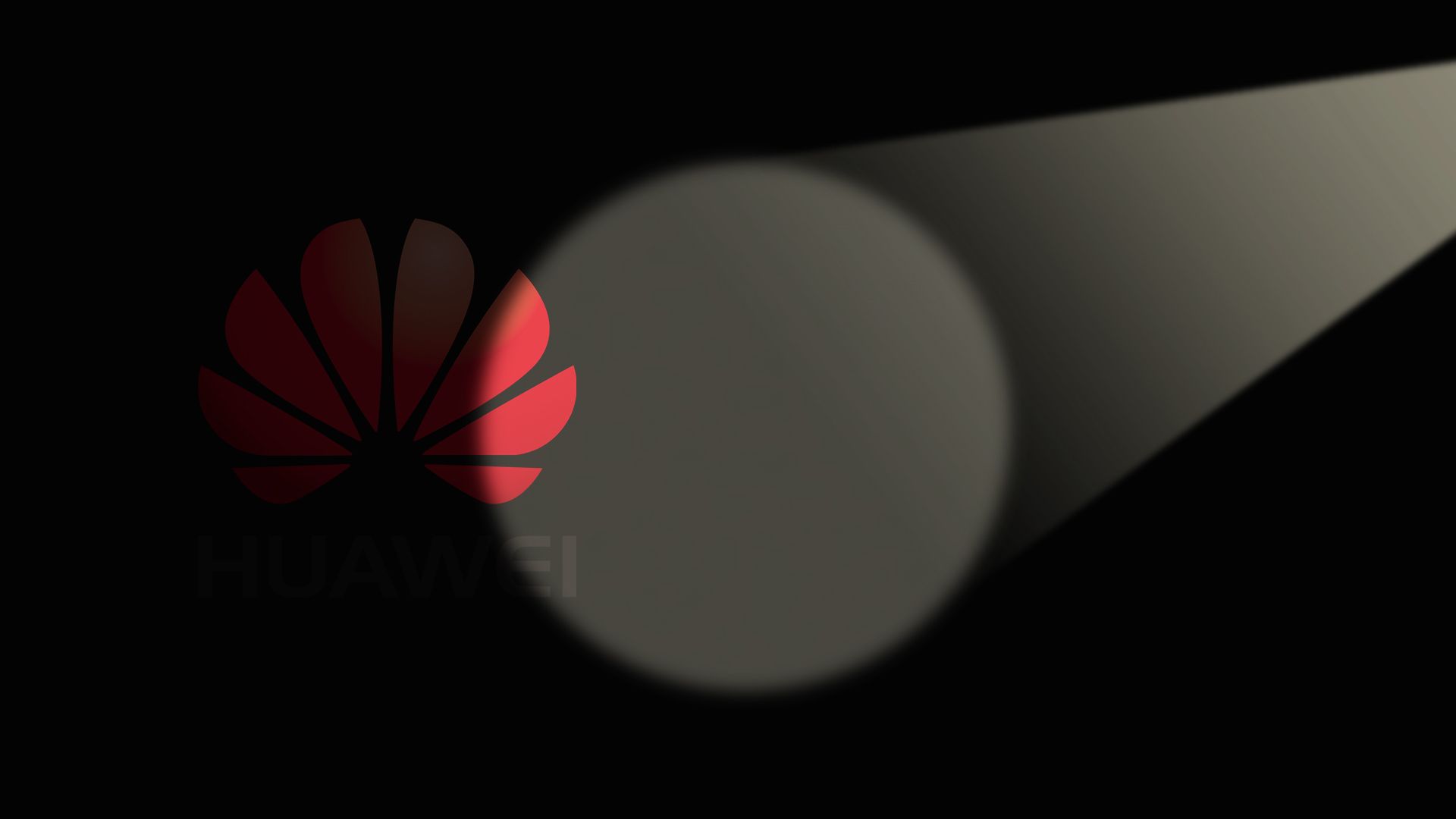Huawei's trial by "what if"
Add Axios as your preferred source to
see more of our stories on Google.

Illustration: Aïda Amer/Axios
U.S. critics of Huawei are ramping up a campaign to make the Chinese telecom giant a global pariah even as key American allies remain unsold on the case against the company.
Where it stands: U.S. officials and experts advocating blocking trade with Huawei lack hard evidence of Beijing-backed misdeeds, so they're asking the rest of the world to make choices based on "what if" scenarios.
Driving the news: Prime Minister Boris Johnson announced Tuesday that the U.K. would use Huawei as one supplier for "non-core" parts of its 5G network.
- The British choice flouted U.S. security warnings and threats that such a move could endanger the longstanding "special relationship" between the nations and cause the U.S. to stop sharing intelligence with its transatlantic ally.
- Wednesday, the EU followed suit, recommending restrictions on Huawei but not an outright ban.
Britain says it's keeping Huawei far away from key routers and other network nerve centers. But intelligence experts for both the U.S. and many of its "Five Eyes" allies believe that the advent of software-configurable equipment and 5G's more decentralized network architecture have eroded the distinction between "core" and edge, leaving networks at risk from almost any point.
The big picture: U.S. efforts to quarantine Huawei come as the Trump administration pursues a trade war with China and Americans grow more concerned over Beijing's willingness to bend technology to its own ends — as it has in surveilling Uighur Muslims.
The case against Huawei relies on two key scenarios.
(1) Espionage: Huawei critics and human rights experts, citing the company's close relationship with China's government and military, along with the provisions of China's 2017 National Intelligence Law, say that any country that uses the company's equipment to build a next-generation 5G wireless network will open its communications networks to Chinese spying and surveillance.
- Yes, but: Overseas, leaders and executives haven't forgotten the long and messy history of U.S. telecommunications surveillance by the NSA and other agencies.
- "If you are not American or Chinese, it can be difficult to discern how arrangements between the U.S. government and American technology companies differ fundamentally from relationships between the Communist Party and Chinese technology companies," as Zachary Karabell wrote last year in Wired.
(2) Sabotage: In a future crisis, Huawei critics say, use of the company's equipment in key networks could render them vulnerable to surprise attacks or give China access to U.S. energy facilities, factories and other critical infrastructure.
Throughout this conflict, which began early in 2018 and ramped up dramatically last year when the U.S. declared a national emergency and barred U.S. firms from trade with Huawei, the Chinese company has vehemently denied any wrongdoing.
- "You need to put in place mechanisms where you can prove — and we're prepared to prove — that we are not subject to the undue influence of the China government," Andy Purdy, chief security officer for Huawei USA, told Axios. "We think that needs to apply to everyone, given the sophistication of nation-states around the world."
The catch: The spying and cyberwarfare scenarios that drive U.S. efforts to block Huawei from the global 5G market remain theoretical at this point.
- There's more of a factual record supporting U.S. quarrels with Huawei over intellectual property issues and questions over the company's role in supplying nations like Iran and North Korea with equipment counter to U.S. and other international sanctions.
- Those charges form the American case against Huawei CFO Meng Wanzhou, whom the U.S. is seeking to extradite from Canada.
Between the lines: A British oversight board tasked with auditing Huawei equipment last year found no evidence of Chinese government meddling but troubling shortfalls in “basic engineering competence and cyber security hygiene.”
- Those flaws could give China — or other potential bad actors — a way to mess with 5G networks.
- The routine stream of updates and patches Huawei, like all device manufacturers, sends its customers to fix such bugs could theoretically provide the company with another avenue to pursue espionage or sabotage.
The bottom line: The intelligence community broadly believes Huawei can't be trusted. But in the absence of evidence, many in industry remain skeptical, and allied governments aren't falling in line with the U.S.
Go deeper: Inside the Feds' battle against Huawei (Garrett Graff in Wired)
